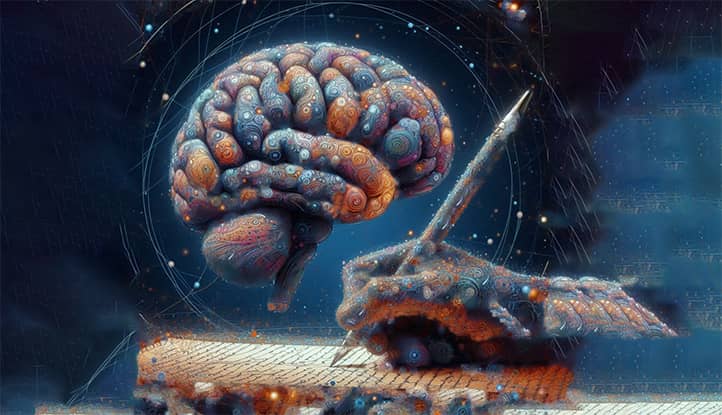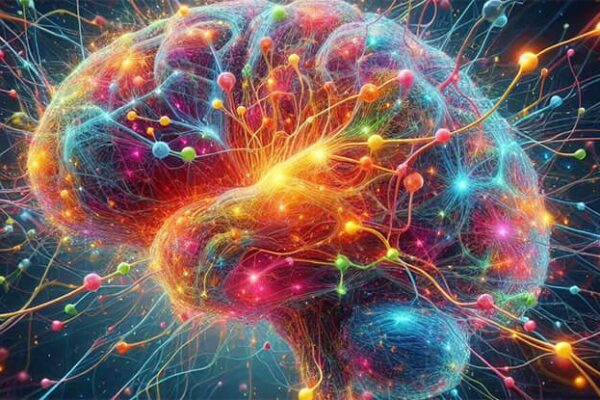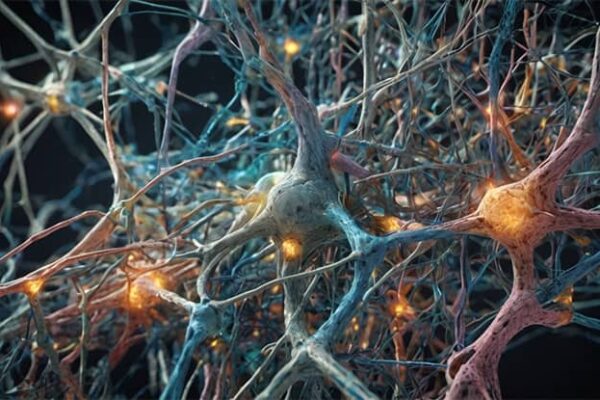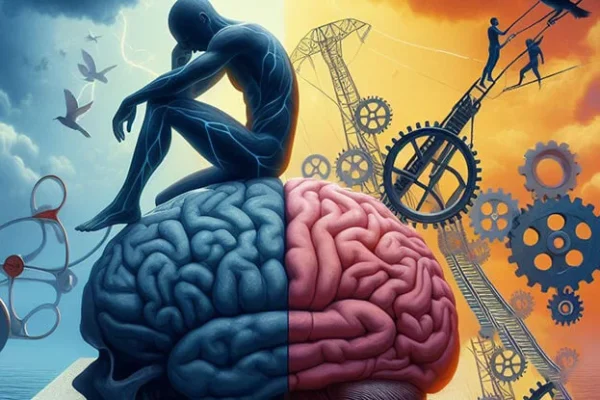In the modern world, where communication and information exchange play a crucial role, the ability to write may seem like a given. However, for some people, even writing simple words can become an insurmountable obstacle. This condition is known as agraphia—a disorder that impairs the ability to write, even when intelligence, vision, and hand motor […]
Higher Mental Functions: Distinctive Features of the Human Mind
Higher mental functions (HMF) are complex mental processes that play a key role in human cognitive activity. They differ from elementary mental processes by their complexity, intentionality, and mediation. Understanding higher mental functions is of great importance to psychology, pedagogy, neuroscience, and other fields related to the study of the human brain and behavior.
Types of Memory: Why Some Things Are Forgotten and Others Remain
Memory is an astonishing and complex ability of our brain that allows us to retain and reproduce information, accumulate life experiences, and shape our personality. Without memory, we wouldn’t be able to learn, grow, or adapt to changing environmental conditions. However, not everything we experience and learn remains with us forever. Some memories disappear almost […]
Invisible wounds: how Ukraine can deal with the psychological consequences of war
The War in Ukraine, which Began in 2014 and Intensified Sharply in 2022, has Left a Deep Mark Not Only on the Country’s Infrastructure but also in the Hearts and Minds of Millions of Ukrainians. In addition to the obvious physical destruction, it has inflicted tremendous damage on the psychological health of the population. These […]
Higher Nervous Activity: A Guide to the Human Brain
Higher Nervous Activity (HNA) is the complex process occurring in the central nervous system of humans and higher animals. The term “higher nervous activity” was introduced by the prominent Russian physiologist I.P. Pavlov to denote the neurophysiological mechanisms underlying mental functions.
Acoustic-Mnestic Aphasia: Neurological and Psychological Aspects
Acoustic-mnestic aphasia is a complex speech function disorder that significantly affects the lives of patients and their loved ones. This type of aphasia is characterized by specific problems in speech perception and reproduction, making it unique among other forms of speech disorders.
The Placebo Effect: Faith as Medicine
The placebo effect is a mysterious phenomenon that has long puzzled scientists and doctors. It represents a positive therapeutic response to an inert substance or procedure that lacks specific therapeutic activity for a given condition. In Latin, “placebo” means “I will please,” or “I will be agreeable.” The term “placebo” was used to describe “dummy” […]
What is Restless Legs Syndrome: Causes, Symptoms, and Treatment
Restless Legs Syndrome (RLS), also known as Willis-Ekbom disease, is a neurological disorder characterized by unpleasant sensations in the legs and an overwhelming urge to move. These symptoms typically worsen during periods of rest or inactivity, especially in the evening and at night, and can seriously disrupt sleep and quality of life.
Addictive Behavior in Modern Society: Challenges and Solutions
Addictive, or dependent, behavior represents a compulsive need to engage in certain actions despite their negative consequences for physical and mental health, social life, and well-being. This complex phenomenon can take various forms, from chemical dependencies such as alcoholism and drug addiction to non-chemical (behavioral) addictions, including gambling addiction, internet addiction, workaholism, and shopping addiction.
Sleep Paralysis: Mystical Theories and Scientific Facts
Imagine the situation: you wake up or are about to fall asleep but suddenly realize you can’t make a sound or move. You are fully aware of what’s happening around you, but your body feels paralyzed. For many people, this is a frightening and anxious experience known as sleep paralysis.
Asthenic Syndrome: Fighting an Invisible Enemy
Asthenic syndrome is a condition characterized by chronic fatigue, decreased work capacity, and a general deterioration in well-being. Despite the apparent simplicity of the symptoms, asthenic syndrome often remains underestimated and underdiagnosed. According to statistics from the World Health Organization, about 20% of the population in developed countries suffer from asthenia, and this number continues […]
Psychosomatic illnesses: when the mind leaves traces on the body
Psychosomatic illnesses refer to physical ailments that arise or worsen under the influence of psychological factors such as stress, anxiety, depression, and other emotional disturbances. This concept is based on the close connection between the mind (psyche) and the body (soma), which exists in the human organism.
Autogenic Training and its Benefits: Secrets of Internal Balance
Autogenic training is a psychotherapeutic method aimed at achieving deep relaxation and control over physical and mental processes in the body. It is based on self-suggestion, concentration on bodily sensations, and visualization.
Box Breathing: Basics of Technique and Practice
In today’s fast-paced reality, filled with constant stress, deadlines, and information overload, it’s crucial to know how to maintain mental and physical balance. One of the most effective yet simple ways to relieve tension and restore balance is Box Breathing—a technique rooted in ancient yogic tradition thousands of years old.
Chronic Fatigue Syndrome: The Hidden Epidemic of Modern Society
Chronic Fatigue Syndrome (CFS), also known as Myalgic Encephalomyelitis (ME), is a serious and complex disorder characterized by extreme fatigue that does not go away with rest and significantly impacts daily life. This syndrome can affect people of any age, gender, or background, and its exact causes are still under active investigation.














